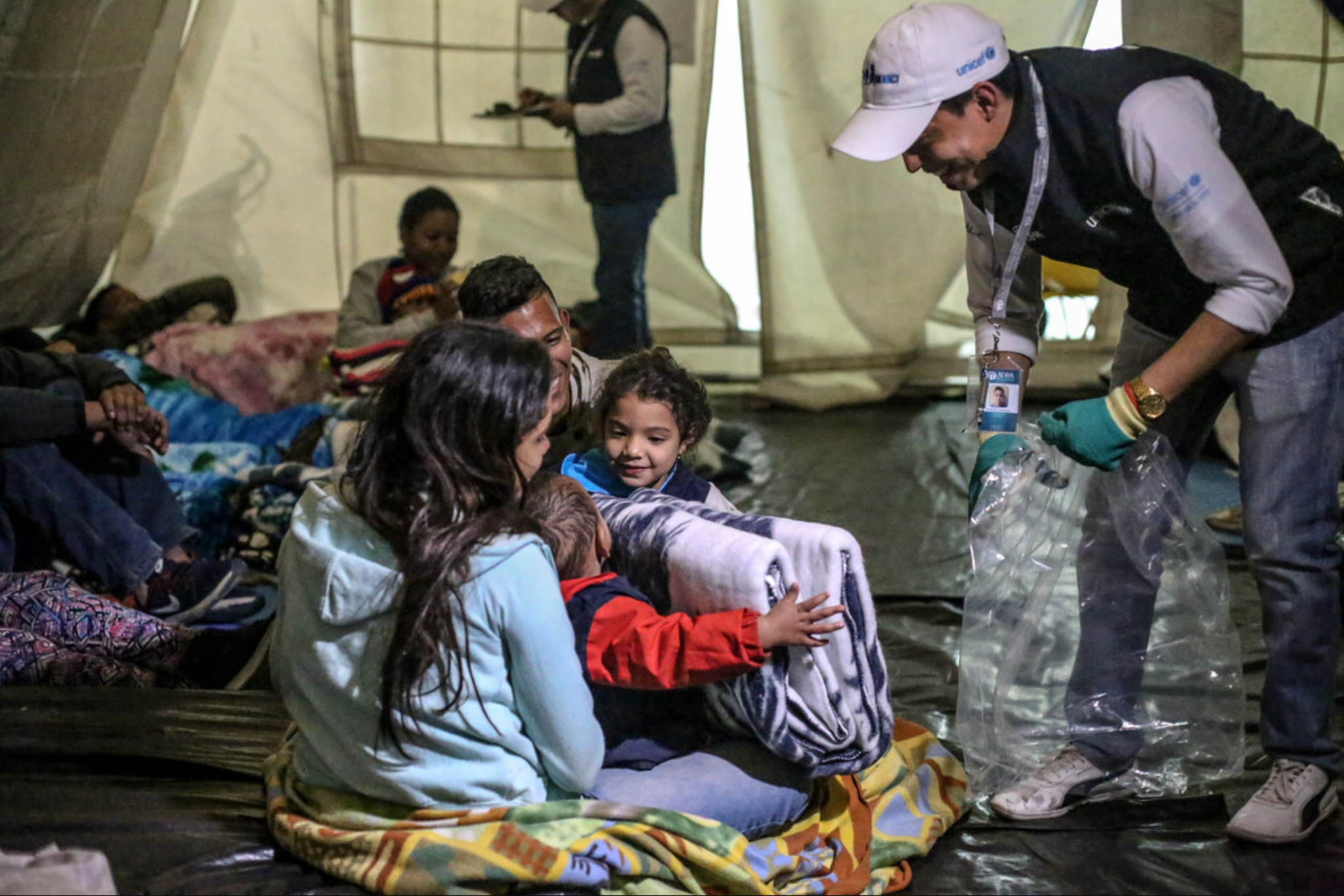Co-author Luisa Feline Freier
South American countries have received far more Venezuelans than the number of asylum seekers most European countries received during the Mediterranean refugee crisis. While the EU, with a total population of around 450 mn persons, received 1.5 mn Syrians at the height of the crisis, South American countries, with a similar population (430 mn), received over 4.5 mn Venezuelans in the last four years. Although the Venezuelan exodus slowed down due to the pandemic, it never ceased and experts expect the outflow to significantly increase once borders across the region fully reopen.
The European Union (EU) recently released the Pact on Migration and Asylum, which makes a sharp distinction between ‘refugees’ and ‘irregular migrants,’ meaning that there are some who deserve protection and others who should be detained and returned. We suggest that South America presents an interesting —and contrasting— case for mobility and refugee protection. The South American regime makes the distinction between irregular entry and stay, and asylum seekers and refugees, almost irrelevant in practice, as irregular migrants have access to basic rights and legal residence, in many cases.
Latin America’s Formal Refugee Protection Regime
The Cartagena Declaration is the flagship instrument of the liberalization of Latin American asylum governance. The Cartagena refugee definition extends protection to “persons who have fled their country because their lives, safety or freedom have been threatened by generalized violence, foreign aggression, internal conflicts, massive violation of human rights or other circumstances which have seriously disturbed public order.” To this day, most South American countries have included the expanded definition of refugee from the Cartagena Declaration into their national laws, alongside a human rights-centred approach to refugee protection.
Overall, Latin American laws are very progressive.
Overall, Latin American laws are very progressive. In South America, Brazil and Argentina offer interesting cases, as the constitutions of both countries include the right to asylum. The refugee laws of both countries extend the same rights of nationals to refugees, except the right to vote in national elections. They also grant both refugees and asylum seekers the right to work, call for a swift accreditation of foreign degrees, and offer full access to public healthcare and education.
De Facto Protection through the Regional Mobility Regime
There are currently two contentious issues regarding the legal status of Venezuelans in the region. The first is the question of whether Venezuelans should be considered migrants or refugees, as there is no regional consensus on whether or not to extend refugee status to them based on the Cartagena definition. Thus far, only Brazil and Mexico have applied the Cartagena refugee definition to a significant number of Venezuelan asylum seekers. Most South American countries decided to adopt diverse ad hoc measures, such as temporary visas and border mobility cards.
The second issue is that Venezuela was the only country that had not ratified the Residence Agreement (RAM) of the Southern Common Market (MERCOSUR) of 2002, a milestone in regional migration governance in South America, which could give legal migratory status to most Venezuelans living in other South American countries. The RAM creates a free residence regime by providing a right of residence for up to two years, after which migrants can apply for permanent residence. It guarantees a wide set of rights that include treatment equal to that of nationals, family reunification and special rights for children born in one of the Member States (including access to education). In the RAM, the regular vs. irregular status of migrants does not determine migrants’ access to rights and regularisation. This constitutes a fundamental difference with the EU Pact, which is centered on the ‘control’ and ‘return’ of irregular migrants. However, only Argentina and Uruguay apply (unilaterally) the RAM to Venezuelans.
Conclusion: Lessons from the South
South America presents an interesting case that could offer some lessons for other world regions. The South American regime works in different, and sometimes contradictory, ways. On the one hand, legislation is exceptionally progressive including the expanded refugee definition of Cartagena and the socio-economic integration of refugees and migrants. For example, across the region, Venezuelans can work as soon as they arrive in most host countries, regardless of their status as migrants or refugees.
countries such as Ecuador and Peru, have limited legal entry for political reasons.
On the other hand, there is also room for learning, as formal refugee legislation coexists with different policy practices, some of which are restrictive and violate international obligations. For example, countries such as Ecuador and Peru, have limited legal entry for political reasons. In either case, there is regional awareness that borders are porous and that it is not possible to stop people from migrating.
It is true that the cultural similarities, including virtually non-existent language and religious differences, between Venezuelans and their regional neighbours facilitate their integration, while the differences between Middle-Eastern and North European migrants and Europeans are broader. However, the logic of the South American regime is different as it considers that the solution to irregular migration is not deportation, but regularisation. Migrants with a regular status are easier to integrate into society and the formal economy. Regularisation is especially important in times of COVID-19, when access to healthcare is crucial. Although there are important differences between countries and increasing resistance to regularisation due to the large scale of Venezuelan displacement in some countries, overall this stands in opposition to the logic of blocking the arrival of migrants that prevails in the EU.
An extended English version was published in the forum of the ASILE project (Global Asylum Governance and the European Union’s Role)
Photo by UNICEF Ecuador on Foter.com / CC BY













